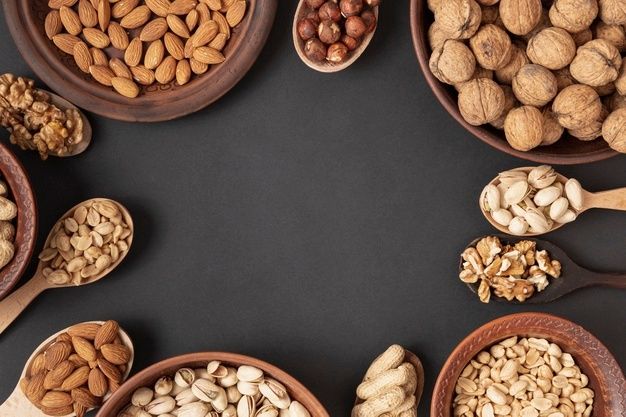
Nuts: Why eating them natural is better?
Share
 Whether you like your nuts salty, sweet, or slightly natural, nuts are delicious and nutritious snacks that are perfect for anytime. Nuts in their simplest forms, raw and roasted, offer a variety of fiber, protein, and healthy fats to keep you active and healthy.
Whether you like your nuts salty, sweet, or slightly natural, nuts are delicious and nutritious snacks that are perfect for anytime. Nuts in their simplest forms, raw and roasted, offer a variety of fiber, protein, and healthy fats to keep you active and healthy.
We know that nuts are staple superfoods in a healthy and balanced diet. Why? They provide many nutrients, especially healthy fats, but they must be chosen properly since we do not want additional fats to those that these nuts already offer naturally.
Is it better to eat them natural or roast them? While roasting peanuts improves flavor, aroma, texture, and crunch, many believe that this additional roasting process could affect the overall nutritional benefits.
What are the benefits of roasting nuts?
Roasting dried fruits like walnuts and peanuts enhances the flavor, creating a dynamic snacking experience. Additionally, many experts claim that roasting walnuts does not alter the structure of the walnut or its nutritional benefits.
Most nuts are either dry or oil roasted without shells, with the exception of pistachios. Roasting is also one of the most common and easiest ways to remove the shell from cashew nuts, for example.
Also read x-ray and benefits of the Nochiola energy mix
Also, roasted nuts are digested much more effectively, satisfying hunger more quickly than raw nuts.
Natural and roasted nuts have very few nutritional differences! Czech...
Although they taste and are prepared differently, there are very few nutritional differences between raw and roasted nuts . Roasted and raw nuts contain comparable levels of carbohydrates, fat, and protein. Despite this, roasted nuts have a higher caloric value and more fat.
So that you can imagine it better, we give you the nutritional properties of some of the most consumed nuts... Take note!
Almonds: 28 grams of raw almonds has about 161 calories and 14 grams of fat, and dry-roasted almonds have 167 calories and 15 grams of fat.
Walnuts: 28 grams of raw walnuts has approximately 193 calories with 14 grams of fat, while the same serving of toasted walnuts contains 199 calories and 21 grams of fat.
Cashews: 28 grams of raw cashews contains approximately 157 calories and 12 grams of fat, while dry-roasted cashews have 163 calories and 13 grams of fat.
What do you think is the reason for this slight nutritional variation? Just as you thought, it's due to the roasting process as the nuts lose moisture and mass.
At Nochiola, our dried fruit mixes contain natural and toasted nuts, but never fried ones.
Why is it NOT recommended to eat fried nuts ?
There are two essential factors to eliminate FRIED nuts from your life no matter how delicious they may seem. One of them is because of the salt that is added after frying them, as well as the oil that has been used to fry the peanuts. As far as salt is concerned, for every 100 grams of nuts, half of the recommended daily maximum consumption is reached.
In addition, it is very common that unhealthy and not recommended oils are used to fry your snack , especially if they are refined.
While natural nuts do not have added salt, you should always check the label or pay attention to your nuts .
Will you start adding healthy snacks to your diet to give your day a boost of energy? At Nochiola you can find our nut mixes: energetic, antioxidant and anti-stress, each one with a delicious combination of nuts, fruits and chocolate that you will love.
